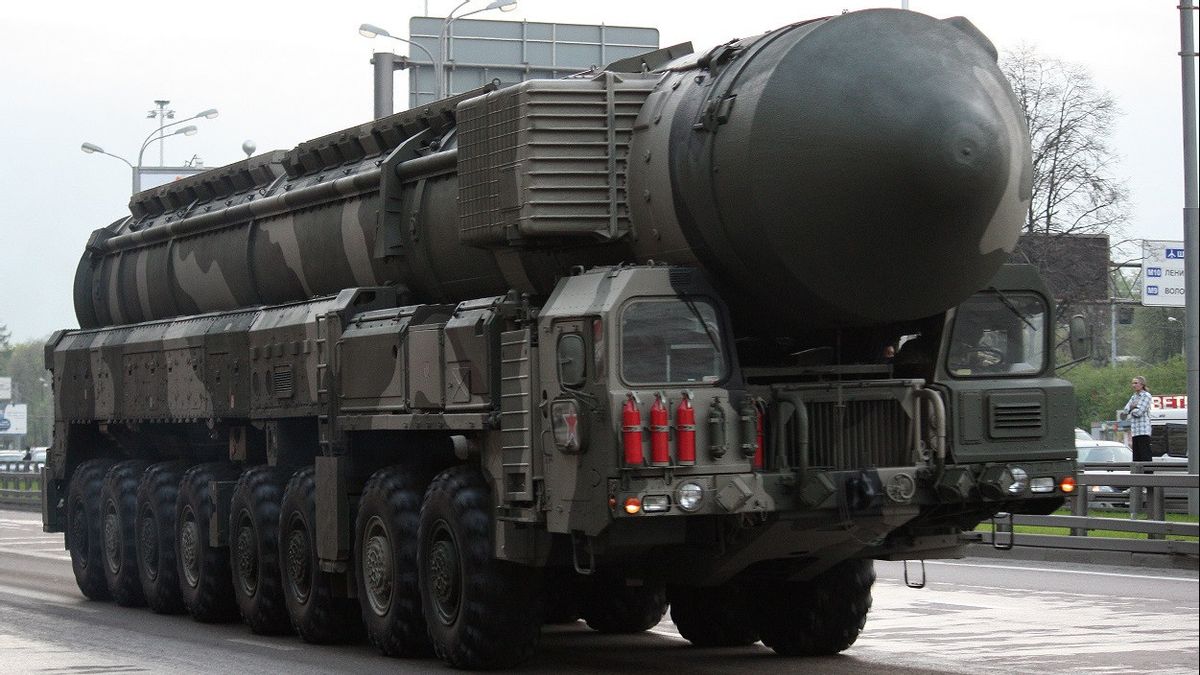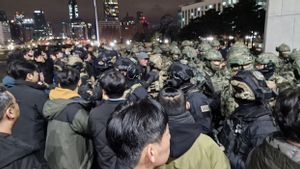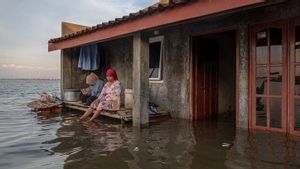JAKARTA - Russia said on Monday it may be forced to deploy medium-range nuclear missiles in Europe, in response to what it sees as a NATO plan to do the same.
The warning from Deputy Foreign Minister Sergei Ryabkov raises the risk of a new arms buildup on the Bitu continent, with East-West tensions at their worst since the Cold War ended three decades ago.
Ryabkov said Russia would be forced to act if the West refused to join it in its moratorium on medium-range nuclear powers (INF) in Europe, part of a package of security guarantees it seeks to defuse the crisis in Ukraine.
The lack of progress towards a political and diplomatic solution will see Russia respond by military means, with military technology, Ryabkov told Russia's RIA news agency.
"Meaning, this will be a confrontation, this will be the next round," he said, referring to the potential deployment of missiles by Russia.
Medium-range nuclear weapons, which have a range of 500 to 5,500 km (310 to 3,400 miles), were banned in Europe under a 1987 or 34-year-old agreement between then-Soviet Union leader Mikhail Gorbachev and US President Ronald Reagan in what was lauded at the time, as a major easing of Cold War tensions. By 1991, both sides had destroyed nearly 2,700 of these weapons.
Washington withdrew from the pact in 2019, after complaining for years over alleged abuses surrounding Russia's development of a ground-launched cruise missile that Moscow calls the 9M729 and NATO calls the "Screwdriver."

If NATO is right that Russia has deployed this system in the European part of the country, west of the Ural Mountains, then the Ryabkov threat is an empty one, according to Gerhard Mangott, an expert on Russian foreign policy and arms control at the University. Innsbruck in Austria.
But if Russia's refusal is true, he said, then Moscow's warning is "the final signal to NATO that they should hold talks with Russia about a freeze-delay agreement."
"If NATO remains in a position not to negotiate a deal, then we will definitely see Russia deploying Screwdriver missiles on its westernmost border," he said.
Ryabkov has emerged in recent days as one of Moscow's main envoys, as President Vladimir Putin pressed for Western security guarantees while facing warnings from the United States and its allies to back down from a possible invasion of Ukraine, something the minister has again denied was Russia's intention.
He repeated a comparison he made last week between current tensions and the Cuban missile crisis of 1962, which brought the United States and the Soviet Union to the brink of nuclear war.
Ryabkov said there were "indirect indications" that NATO was moving closer to deploying intermediate-range missiles, including its recovery last month from the 56th Artillery Command which operated the nuclear-capable Pershing missile during the Cold War.
NATO says there will be no new US missiles in Europe and stands ready to deter Russia's new missiles with a "scalable" response that would involve only conventional weapons.
But Ryabkov said Russia had a "lack of trust" in the alliance.
"They don't allow themselves to do anything that can somehow increase our security. They believe they can act as needed, to their advantage, and we just have to swallow this whole thing and deal with it. This is not going to continue," he stressed.
The English, Chinese, Japanese, Arabic, and French versions are automatically generated by the AI. So there may still be inaccuracies in translating, please always see Indonesian as our main language. (system supported by DigitalSiber.id)











